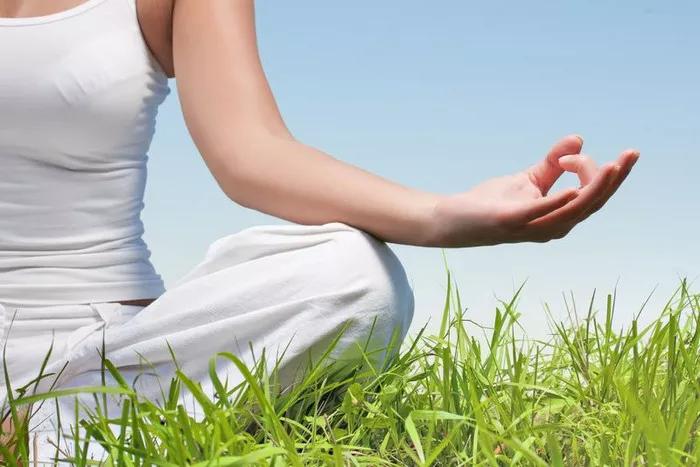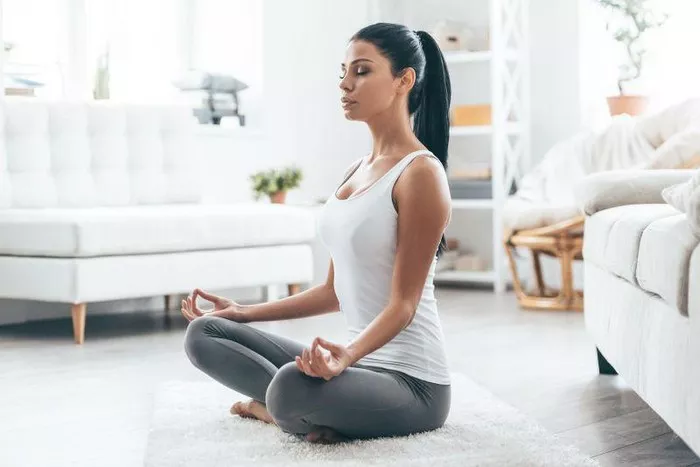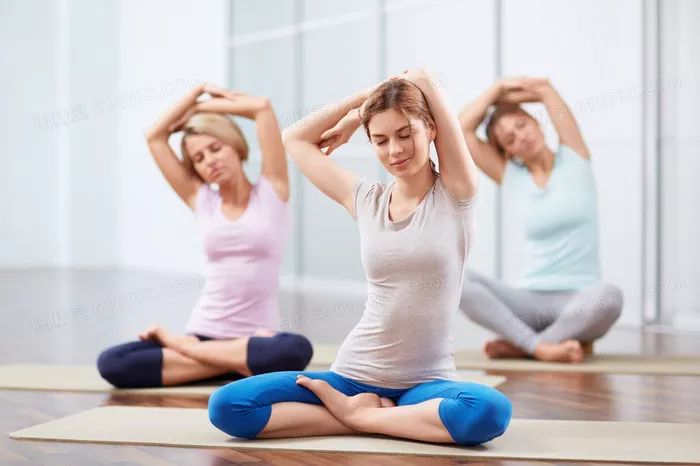Yoga, an ancient practice that originated in India thousands of years ago, has gained immense popularity in modern times. It is not merely a form of physical exercise but a holistic discipline that unites the body, mind, and spirit. The practice of yoga offers a plethora of health benefits that can enhance the quality of life and promote overall well-being. From physical fitness and flexibility to mental clarity and emotional stability, yoga has something valuable to offer for individuals of all ages and fitness levels.
Physical Health Benefits
Enhanced Flexibility: One of the most noticeable benefits of yoga is the improvement in flexibility. Through a diverse range of poses such as forward folds, backbends, and twists, the muscles and joints are stretched and lengthened. For example, in a seated forward fold like Paschimottanasana, the hamstrings are gradually elongated, allowing for greater range of motion over time. This increased flexibility can reduce the risk of injuries during daily activities and sports, as well as alleviate muscle soreness and stiffness. It also enables better posture and body alignment, which is essential for maintaining a healthy musculoskeletal system.
Strengthened Muscles: Many yoga poses require the activation and strengthening of various muscle groups. Standing poses like Warrior I (Virabhadrasana I) and Warrior II (Virabhadrasana II) build strength in the legs, including the quadriceps, hamstrings, and calves. The arms and shoulders are strengthened through poses such as Plank Pose (Phalakasana) and Chaturanga Dandasana. Core muscles are engaged in almost every pose, from simple balancing poses like Tree Pose (Vrksasana) to more complex ones like Boat Pose (Navasana). This comprehensive muscle strengthening helps to improve overall physical strength and stability, enhancing the ability to perform daily tasks with ease.
Better Posture: Regular yoga practice can correct poor posture, which is a common issue in today’s sedentary lifestyle. Poses that focus on opening the chest and strengthening the back muscles, such as Cobra Pose (Bhujangasana) and Upward Facing Dog (Urdhva Mukha Svanasana), counteract the effects of prolonged sitting. By strengthening the muscles that support the spine and increasing body awareness, practitioners are more likely to maintain a correct and upright posture. This not only reduces the risk of back and neck pain but also gives a more confident and poised appearance.
Improved Balance and Coordination: Yoga includes numerous poses that challenge balance and coordination. Single-leg balances like Tree Pose and Eagle Pose (Garudasana) require concentration and stability. Inverted poses such as Headstand (Sirsasana) and Handstand (Adho Mukha Vrksasana) also enhance proprioception and balance skills. These balance-enhancing poses can be beneficial for individuals of all ages, as good balance helps to prevent falls, especially in the elderly. Moreover, improved coordination between different body parts can enhance athletic performance and make daily movements more fluid and efficient.
Cardiovascular Health: Some forms of yoga, such as Vinyasa Flow and Power Yoga, can provide a cardiovascular workout. The continuous movement and flow of poses, combined with breath control, increase the heart rate and improve circulation. For example, a vigorous Vinyasa class with a series of Sun Salutations and flowing sequences can get the heart pumping, similar to aerobic exercises. This helps to strengthen the heart muscle, lower blood pressure, and improve overall cardiovascular endurance. Additionally, the relaxation and stress reduction that come with yoga can also have a positive impact on heart health by reducing stress hormones that can affect the cardiovascular system.
Joint Health: The gentle and controlled movements in yoga, along with the stretching and strengthening of the muscles around the joints, can promote joint health. Poses like Cat-Cow Pose (Marjariasana-Bitilasana) help to lubricate the spine and keep the joints of the vertebral column mobile. Hip-opening poses such as Pigeon Pose (Eka Pada Rajakapotasana) and Frog Pose (Mandukasana) increase the flexibility and stability of the hip joints. By maintaining healthy joints, individuals can enjoy a more active lifestyle and reduce the risk of developing joint-related disorders like arthritis.
Mental Health Benefits
Stress Reduction: Yoga is renowned for its stress-relieving properties. The combination of physical movement and breath awareness activates the parasympathetic nervous system, which counteracts the stress response. When we focus on our breath during a yoga session, it distracts us from the worries and anxieties of daily life. For instance, in a restorative yoga pose like Savasana, the body and mind are allowed to completely relax, releasing tension and stress. The regular practice of yoga can also lower the levels of stress hormones like cortisol in the body, leading to a more calm and relaxed state of mind.
Increased Concentration and Focus: The need to maintain balance and flow in a yoga sequence demands concentration. As we move from one pose to another, we must be present and focused on our body’s movements and the breath. This practice of concentration in yoga can translate into improved focus in other areas of life, such as work or study. For example, during a complex Vinyasa flow, the mind is trained to stay centered and avoid distractions. Over time, this enhanced concentration ability can boost productivity and performance in various tasks.
Mental Relaxation and Clarity: The meditative aspects of yoga, such as the repetition of mantras or the focus on a single point, induce a state of mental relaxation. This allows the mind to let go of racing thoughts and enter a calmer state. In a yoga class, the quiet and peaceful environment further enhances this relaxation, providing a break from the hustle and bustle of the outside world. The clarity of mind that comes with regular yoga practice can also help in decision-making and problem-solving, as it enables a more objective and rational approach.
Emotional Stability and Well-being: Yoga helps to regulate emotions. The breath work and physical movements can release pent-up emotions and provide a healthy outlet for stress and anxiety. For instance, a vigorous Vinyasa practice might allow a person to let go of anger or frustration in a productive way. Additionally, the relaxation and self-reflection that occur during and after yoga can lead to a more stable emotional state, reducing mood swings and promoting overall emotional well-being. It can also enhance self-esteem and self-acceptance, as practitioners learn to connect with and appreciate their bodies and minds.
Better Sleep Quality: The stress reduction and relaxation that result from yoga practice can have a significant impact on sleep. By calming the mind and relaxing the body, yoga helps to prepare for a restful night’s sleep. Poses like Legs Up the Wall Pose (Viparita Karani) and Forward Fold can relieve tension in the legs and back, making it easier to fall asleep. The regular practice of yoga can also improve sleep patterns, reducing insomnia and promoting deeper and more restorative sleep. This, in turn, has a positive impact on overall health and energy levels during the day.
Enhanced Cognitive Function: Some studies suggest that yoga can have a positive effect on cognitive function. The combination of physical exercise, breath control, and mental focus may improve memory, attention, and processing speed. For example, the increased blood flow to the brain during yoga practice can nourish the neurons and enhance their function. The stress reduction and mental relaxation also create an optimal environment for learning and retaining new information, which can be beneficial for students and individuals looking to maintain mental sharpness as they age.
Spiritual and Inner Growth Benefits
Self-Discovery and Awareness: The practice of yoga encourages self-reflection and self-discovery. Through the exploration of different poses and the connection with the breath, we can gain a deeper understanding of ourselves, our bodies, and our minds. For example, in a Yin yoga practice, where poses are held for an extended period, we have the opportunity to observe our thoughts and emotions as they arise, leading to greater self-awareness. This self-awareness can help us make positive changes in our lives and better understand our relationships with others.
Connection with a Higher Power or Inner Self: For some, yoga is a spiritual journey that leads to a connection with a higher power or a sense of universal energy. The chanting of mantras, the focus on the breath as a life force, and the overall sense of unity and harmony in a yoga practice can create a spiritual experience. This connection can provide a sense of purpose and meaning in life, and a feeling of being part of something greater than oneself. It can also offer a source of comfort and guidance during challenging times.
Cultivation of Inner Peace and Compassion: Yoga promotes the cultivation of inner peace and compassion. The practice of non-violence (ahimsa) and self-acceptance extends to how we interact with others. By developing a sense of peace within ourselves, we are more likely to show kindness and compassion to those around us. This can have a positive impact on our relationships and contribute to a more harmonious and loving community. The regular practice of yoga can also help us let go of negative emotions like anger and resentment, replacing them with feelings of love and forgiveness.
Transcendence of Ego: In the process of yoga practice, there is an opportunity to transcend the ego. As we focus on the present moment and the connection between body and mind, we become less attached to external achievements and self-importance. This can lead to a more humble and authentic way of being, where we are more concerned with inner growth and well-being than with outward appearances and status. The ability to let go of the ego can also reduce stress and anxiety related to competition and comparison with others.
Conclusion
The health benefits of doing yoga are truly remarkable and encompass physical, mental, spiritual, and inner growth aspects. From improving flexibility and strength to reducing stress and enhancing mental clarity, yoga offers a comprehensive approach to well-being. Whether you are looking to enhance your physical fitness, find inner peace, or boost your cognitive function, incorporating yoga into your daily life can be a life-changing decision. With its wide range of styles and practices, there is a form of yoga suitable for everyone, regardless of age, fitness level, or personal beliefs. So, roll out your mat and embark on the journey of self-discovery and holistic health through yoga.
Related topics



















